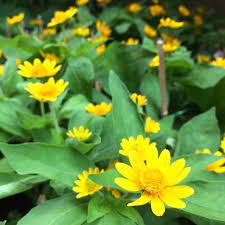
Across cultures and continents, sunflowers have woven themselves into the fabric of folk culture, serving as potent symbols of beauty, abundance, and spirituality. From ancient civilizations to modern societies, these radiant blooms have inspired myths, rituals, and traditions that celebrate their enduring significance in the human experience. In this exploration, we delve into the multifaceted role of sunflowers in folk culture, unraveling the threads of symbolism and tradition that bind them to the collective consciousness of humanity.
**Symbolism of Sunflowers**
Sunflowers have long been revered as symbols of vitality, growth, and the eternal cycle of life. Their vibrant yellow petals, reminiscent of the sun’s radiant rays, evoke feelings of warmth, optimism, and joy. In many cultures, sunflowers are associated with solar deities and fertility goddesses, embodying the divine essence of creation and renewal.
Moreover, sunflowers exhibit a remarkable heliotropic behavior, turning their faces to follow the sun’s path across the sky throughout the day. This dynamic movement has led to their interpretation as symbols of loyalty, devotion, and the pursuit of enlightenment, as they steadfastly track the source of life and illumination.
**Cultural Significance**
The cultural significance of sunflowers extends far beyond their botanical beauty, permeating various aspects of daily life and social customs. In many societies, sunflowers are revered as auspicious symbols of good fortune and prosperity, often featured in rituals and ceremonies to invoke blessings and ward off evil spirits.
In folk medicine, sunflowers have been used for their medicinal properties, with various parts of the plant believed to possess healing powers for ailments ranging from fevers and inflammation to skin conditions and digestive disorders. Sunflower seeds, in particular, are valued for their nutritional benefits and energy-boosting properties, serving as a staple food source in many traditional diets.
**Rituals and Celebrations**
Throughout history, sunflowers have been central to a myriad of rituals and celebrations that mark significant milestones in the human experience. In agricultural societies, sunflower cultivation is often intertwined with seasonal festivals and harvest celebrations, where the bounty of the land is honored and shared among community members.
In wedding traditions, sunflowers are a popular motif symbolizing love, loyalty, and fidelity. Brides may incorporate sunflowers into their bouquets, decor, and bridal attire as a symbol of the radiant beauty and enduring commitment of marriage.
Similarly, sunflowers feature prominently in religious ceremonies and spiritual practices, where they serve as offerings to deities, ancestors, and nature spirits. In Native American cultures, sunflowers hold sacred significance as symbols of abundance and gratitude, often used in rituals to honor the earth and express reverence for the interconnectedness of all living beings.
**Art and Literature**
The timeless allure of sunflowers has inspired artists, poets, and writers throughout the ages, who have sought to capture their beauty and symbolism in works of art and literature. Vincent van Gogh’s iconic series of “Sunflowers” paintings immortalize the flower’s vibrant hues and expressive form, inviting viewers into a world of transcendent beauty and contemplation.
In literature, sunflowers frequently appear as motifs of hope, resilience, and transformation, symbolizing the triumph of the human spirit over adversity. From ancient myths and folktales to contemporary novels and poetry, sunflowers continue to serve as powerful metaphors for the journey of life and the quest for meaning and fulfillment.
**Conclusion**
In the tapestry of human culture, sunflowers stand as timeless symbols of beauty, abundance, and spiritual illumination. Across generations and continents, these radiant blooms have inspired awe and reverence, enriching our lives with their vibrant presence and enduring significance. As we honor the rich traditions and symbolism associated with sunflowers, we are reminded of the profound connections that unite us to the natural world and the timeless wisdom encoded within its blossoms.